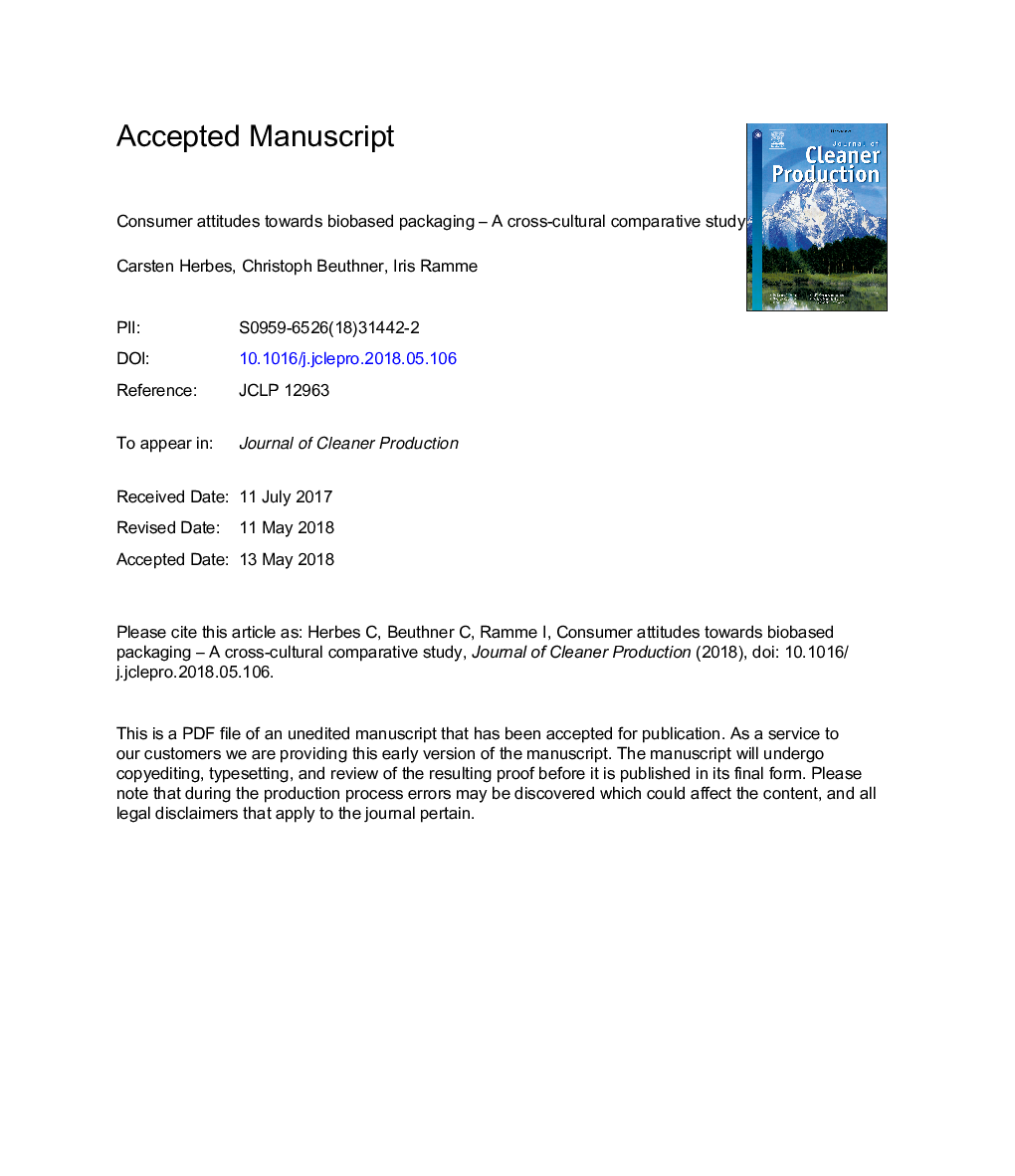| Article ID | Journal | Published Year | Pages | File Type |
|---|---|---|---|---|
| 8094177 | Journal of Cleaner Production | 2018 | 44 Pages |
Abstract
Growing awareness of the environmental damage associated with conventional product packaging has led to keen interest in 'green', 'environmentally friendly' or 'sustainable' packaging. Research tells us a great deal about how the 'environmental friendliness' of a package may influence a consumer purchasing decision, but we have little scientific insight into the attributes that shape consumer perceptions of 'environmental friendliness. Hence, we examined how the interplay of environmentally friendly packaging attributes influences an overall evaluation of environmental friendliness, surveying attitudes from three Western consumer cultures: Germany, France, and the U.S. We found that consumers focus predominantly on end-of-life attributes of packaging, although the cultures differ in how they weigh the relative value of recyclability, reusability and biodegradability. We found that consumers concern themselves less with renewable origins, and almost not at all with activities relating to production, transport and retail use. We also found that widespread misunderstanding of biomethane continues to exist; further, the fact that biomethane is 'biobased' counts little in consumer ratings if the product is not also 'biodegradable'. Ethical concerns about the use of agricultural land to produce biogas substrates are raised primarily by German consumers. A comparison with results from LCA studies of packaging revealed a number of discrepancies between consumer perception and facts on the environmental impact of different packaging options. Brand owners advancing environmentally friendly packaging initiatives are advised to feature those eco-advantages that pertain to the post-use phase and to differentiate packaging strategies across countries.
Related Topics
Physical Sciences and Engineering
Energy
Renewable Energy, Sustainability and the Environment
Authors
Carsten Herbes, Christoph Beuthner, Iris Ramme,
